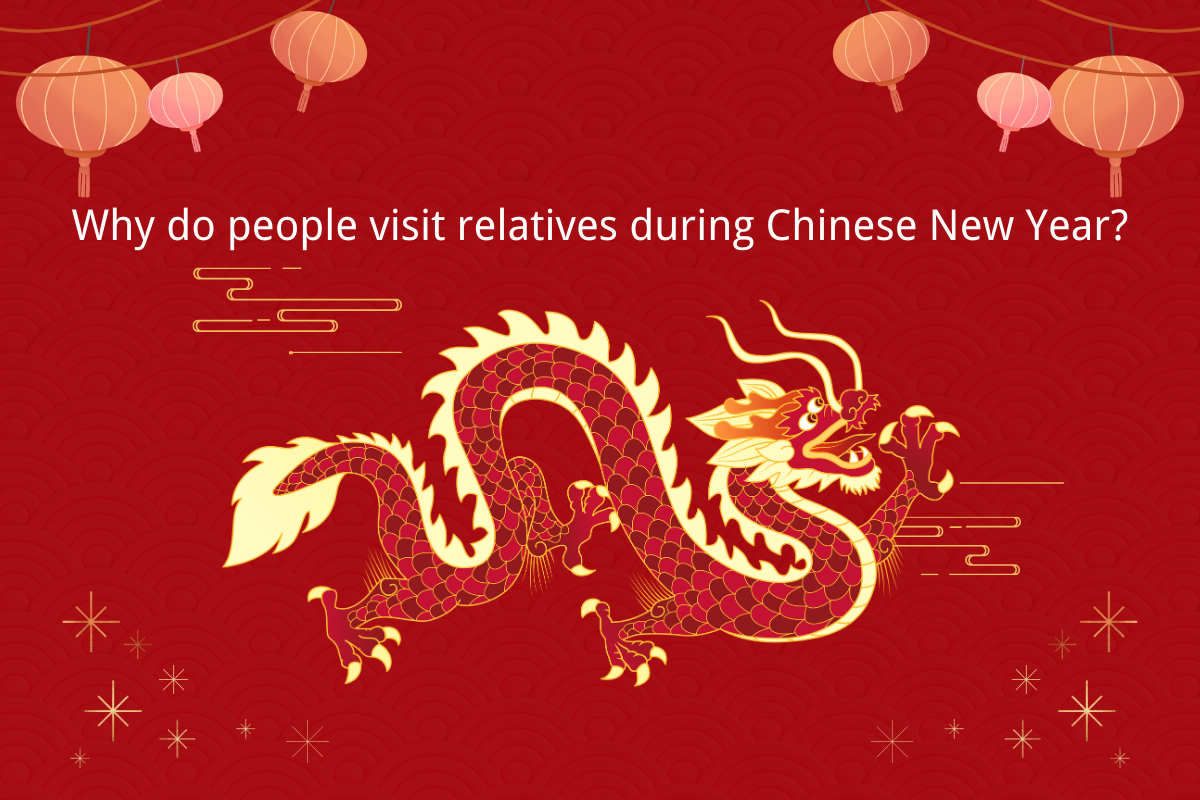Why do People Visit Relatives During Chinese New Year?
As the dawn of Chinese New Year approaches, bustling streets come alive with vibrant decorations and the heady scent of anticipation fills the air. Amidst the joyful chaos, one tradition stands out as a cornerstone of the holiday: visiting relatives. But why do people embark on this annual pilgrimage to reconnect with loved ones during this auspicious time? Let's delve into the cultural significance behind this cherished practice.

Honoring Ancestral Ties
Chinese New Year, or "Spring Festival" as it's affectionately known, is a time to honor familial bonds and ancestral ties. Visiting relatives 亲戚 (qīn qi) during this period is deeply rooted in the Confucian values of filial piety and respect for elders. It's a way to pay homage to one's roots, express gratitude for the wisdom passed down through generations, and strengthen the familial bond that forms the bedrock of Chinese society.
亲戚 (qīn qi), noun, relative
Examples:
- My relatives all live near the city.
我的亲戚都住在城市附近。
Wǒ de qīnqi dōu zhù zài chéngshì fùjìn. - We went to visit relatives.
我们去拜访亲戚了。
Wǒmen qù bàifǎng qīnqi le.
Renewing Connections
In today's fast-paced world, where distance often separates families, Chinese New Year offers a precious opportunity to reconnect with relatives near and far. It's a time to set aside the busyness of daily life, gather under one roof, and share in the warmth 温暖 (wēn nuǎn) of familial love. Through laughter, shared meals, and heartfelt conversations, relatives reaffirm their bonds and create lasting memories that transcend the passage of time.
温暖 (wēn nuǎn), noun, warmth
Examples:
- Family gatherings are filled with warmth.
家庭团聚时充满了温暖。
Jiātíng tuánjù shí chōngmǎnle wēnnuǎn. - The warmth between friends makes people feel happy.
朋友之间的温暖让人感到幸福。
Péngyǒu zhījiān de wēnnuǎn ràng rén gǎndào xìngfú.

Spreading Joy and Prosperity
Chinese New Year is not only a time for personal reflection and familial reunions but also a season of spreading joy and prosperity. By visiting relatives, people exchange blessings and good wishes for the year ahead, symbolizing a shared commitment to each other's well-being and success. The act of giving and receiving "红包" (hóngbāo) or red envelopes filled with lucky money embodies this spirit of generosity and abundance.
- Dad, why do we visit relatives during Chinese New Year?
爸爸,为什么春节要走亲戚呢?
Bàba, wèishénme chūnjié yào zǒuqīnqi ne? - We visit relatives to reunite with family and celebrate Chinese New Year together.
走亲戚是为了和亲戚团聚,一起欢度春节。
Zǒuqīnqi shì wèile hé qīnqi tuánjù, yīqǐ huāndù chūnjié. - I see, I can't wait to play with my cousins.
原来如此,我好期待和表哥表姐们一起玩耍。
Yuánlái rúcǐ, wǒ hǎo qídài hé biǎogē biǎojiěmen yīqǐ wánshuǎ.
Related Articles
- What are the 4 most Interesting Facts About Chinese New Year?
- What is the Evil Spirit in Chinese New Year?
- What Decorations are Used at Chinese New Year?
- Best Traditional Chinese New Year Activities (Part Three)
- Best Traditional Chinese New Year Activities (Part Two)
- Best Traditional Chinese New Year Activities (Part One)
- Chinese Red Packet Tradition: Traditional Blessings and Festivities
- The Dining Traditions and Symbolism of Chinese New Year that You must Know
- A Taste of Tradition: Comparing Northern and Southern Chinese New Year Feasts
- Lucky Food in Chinese New Year